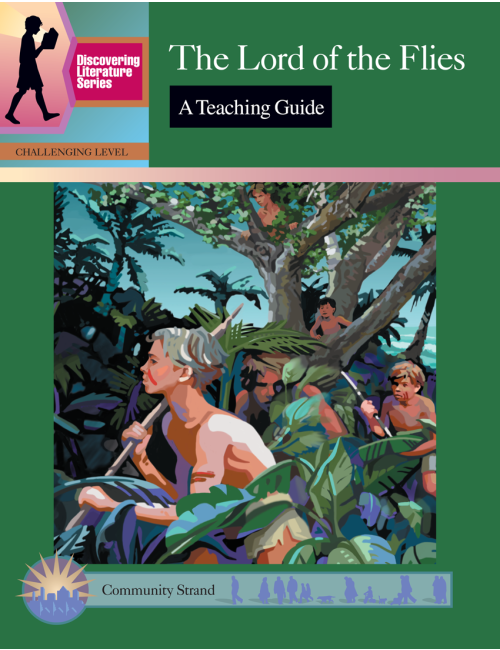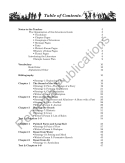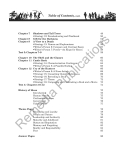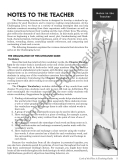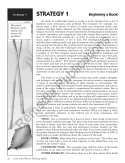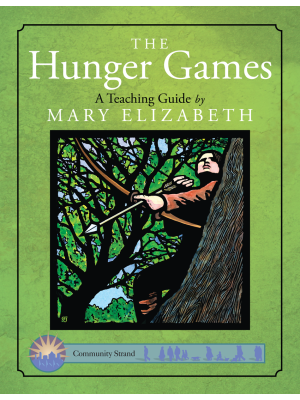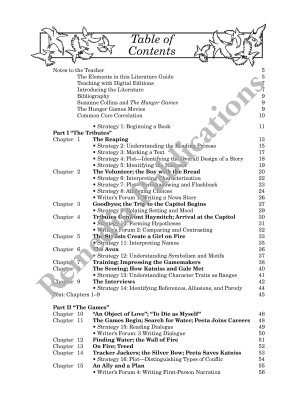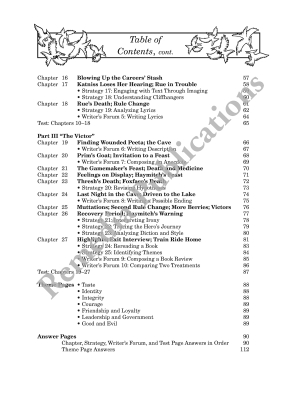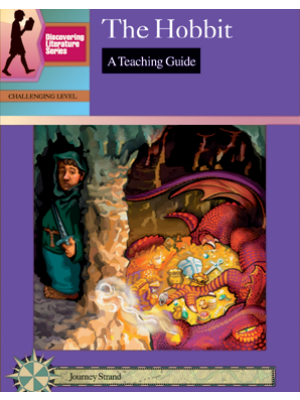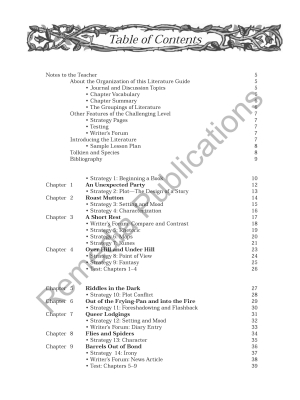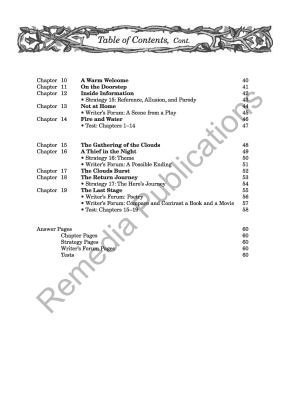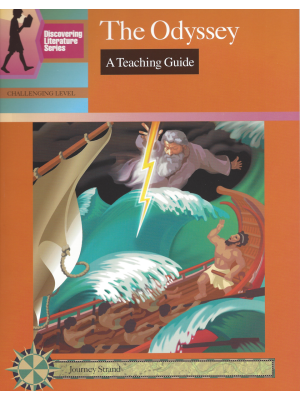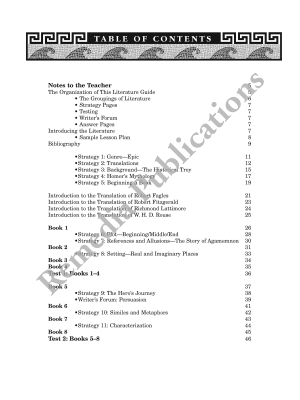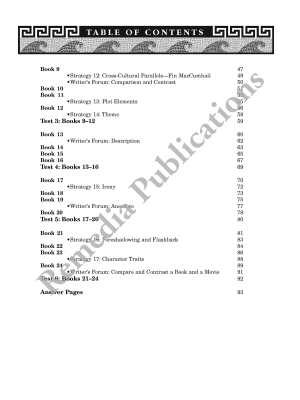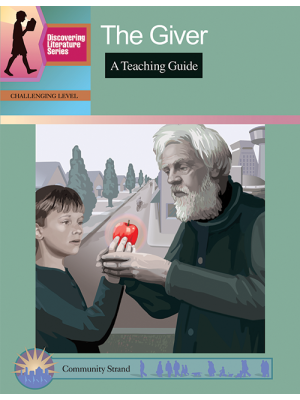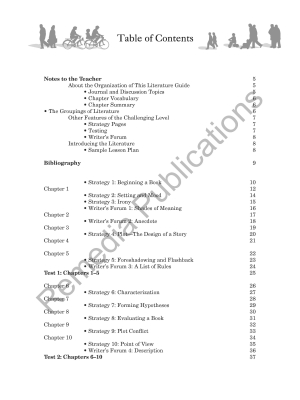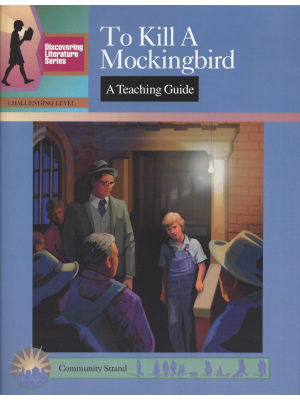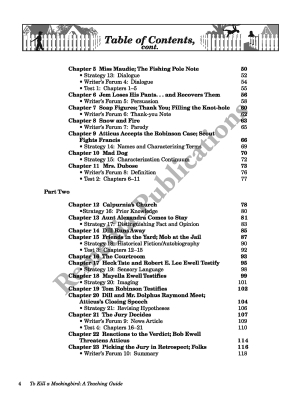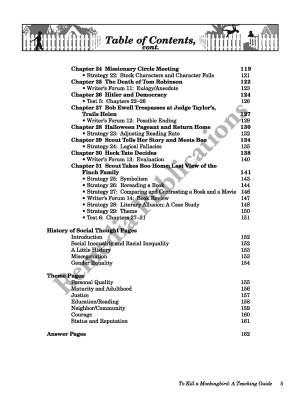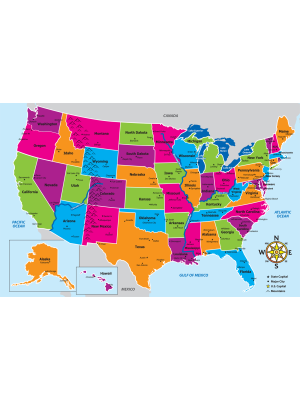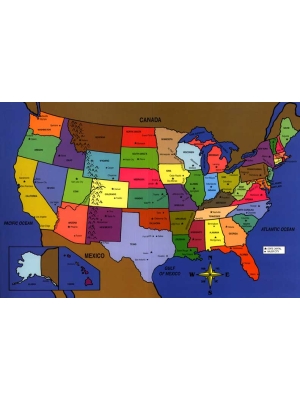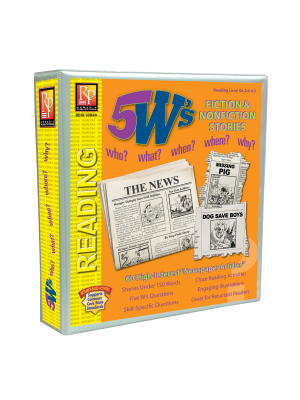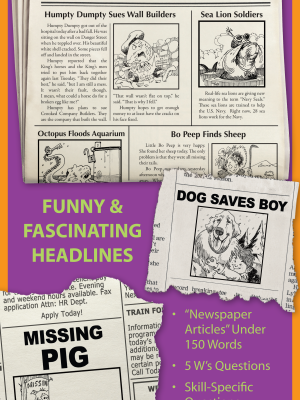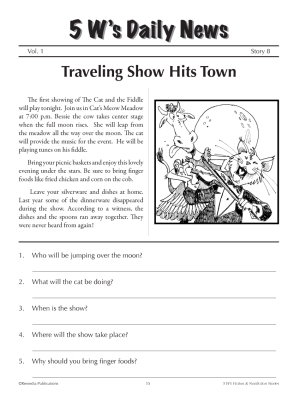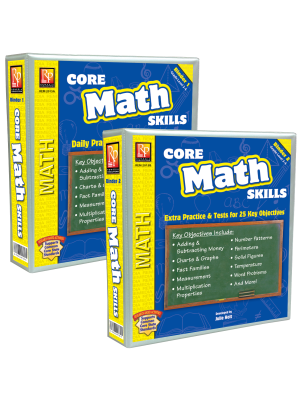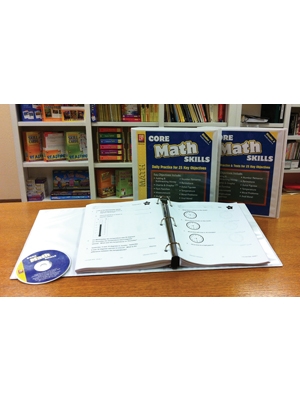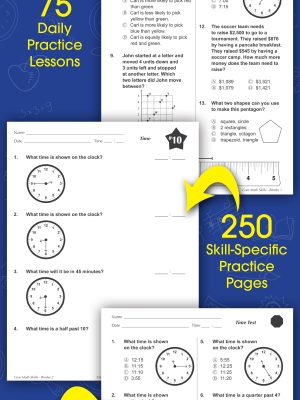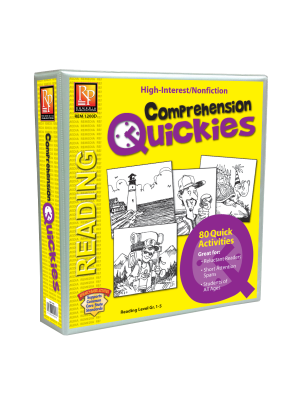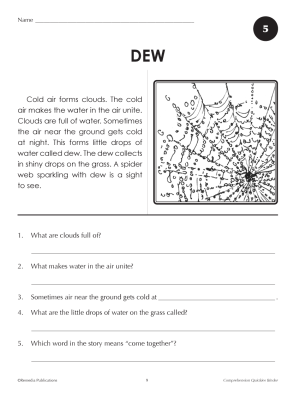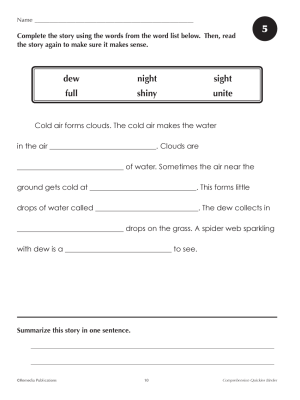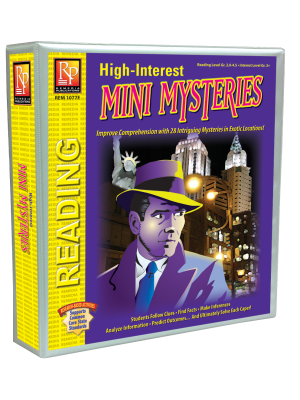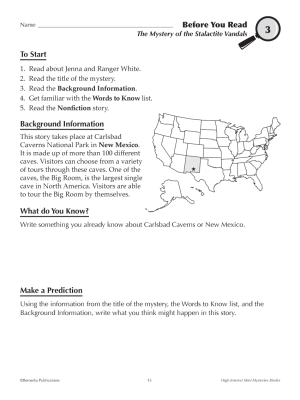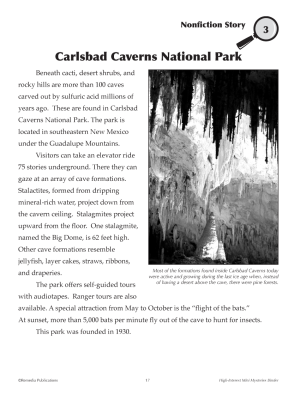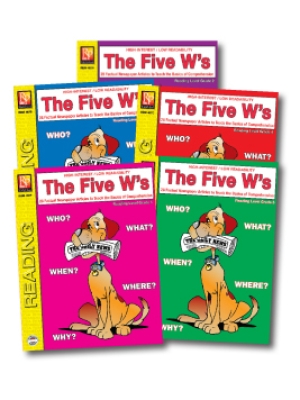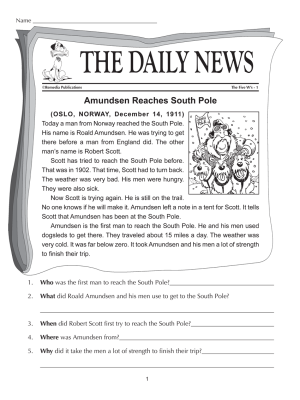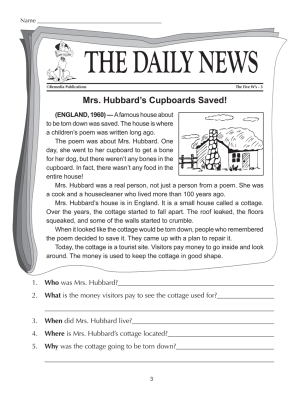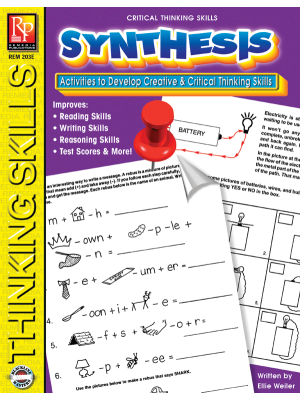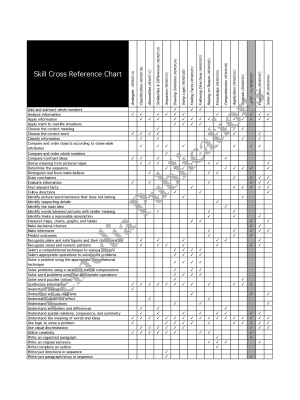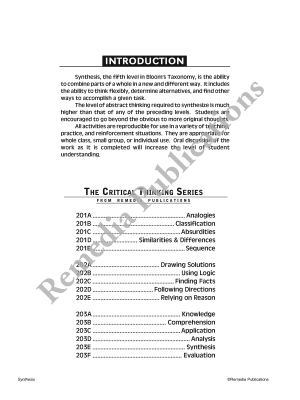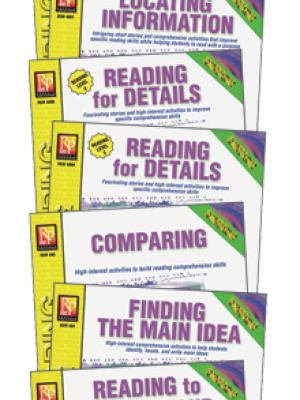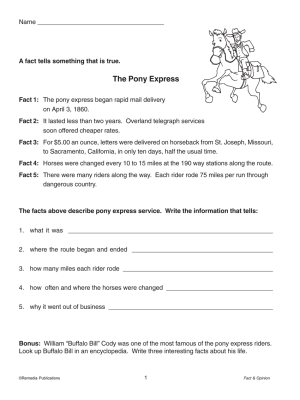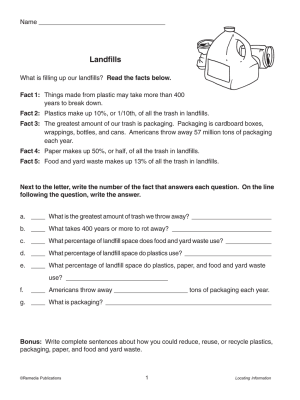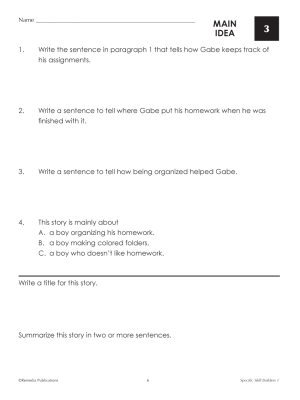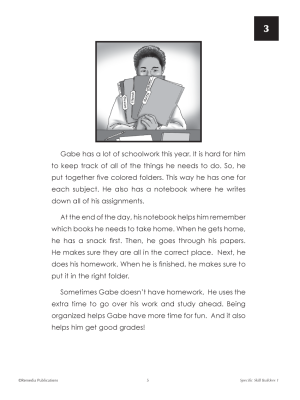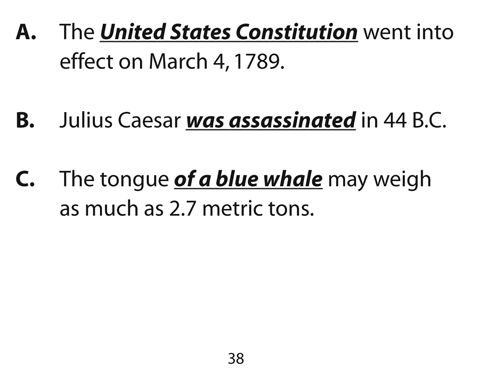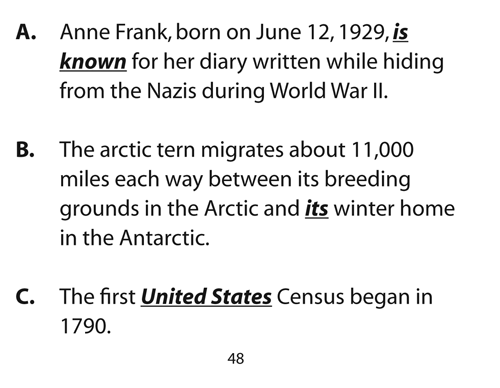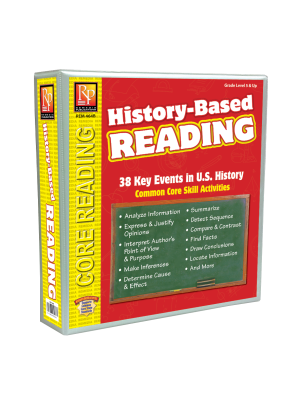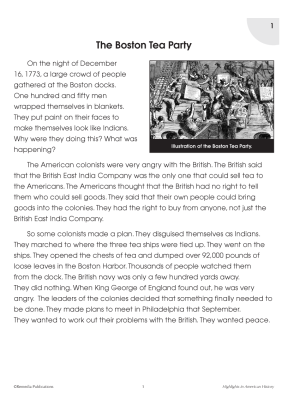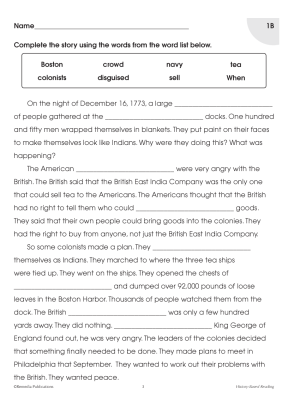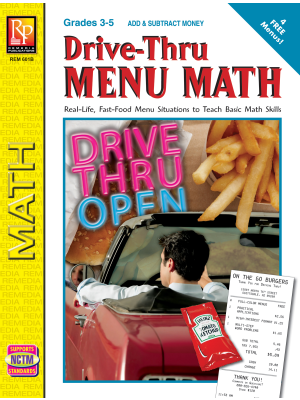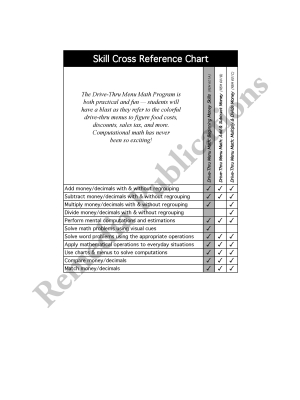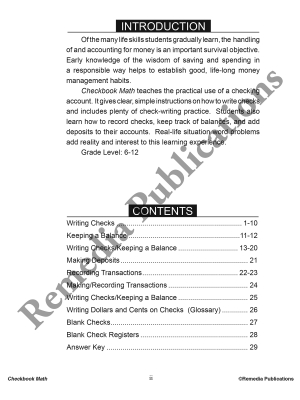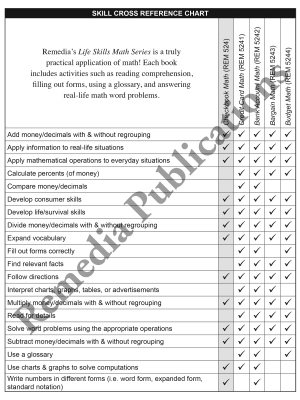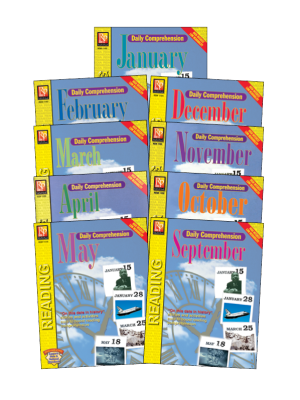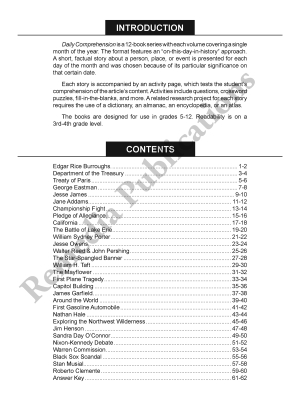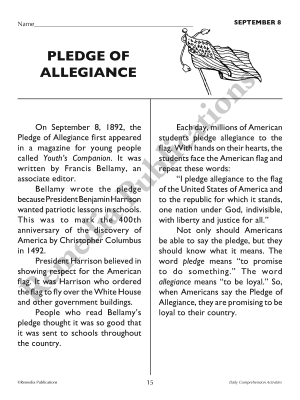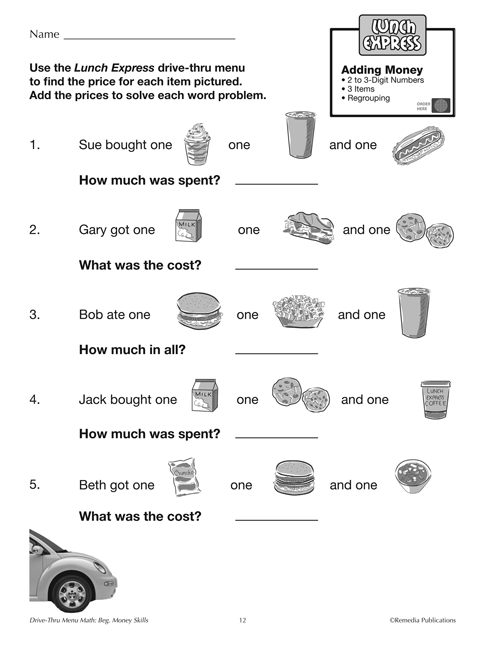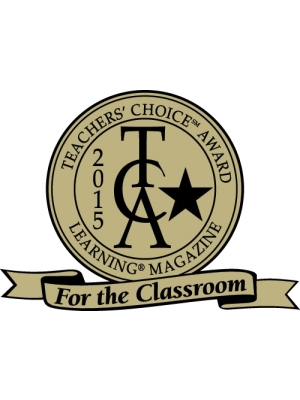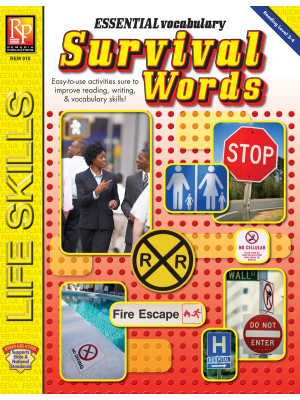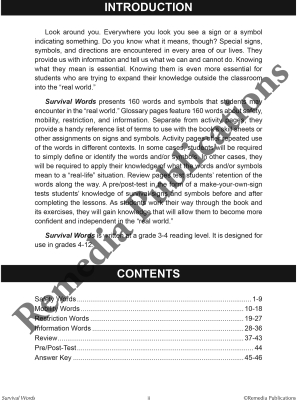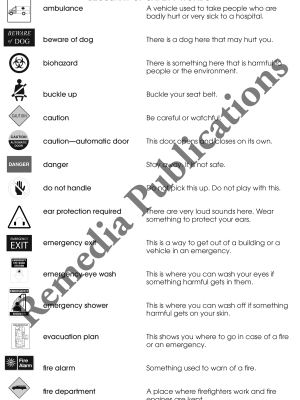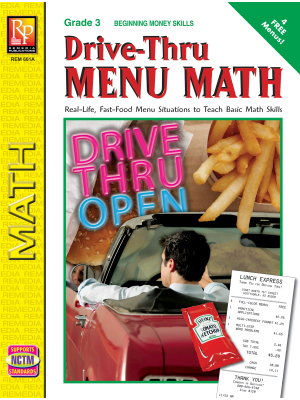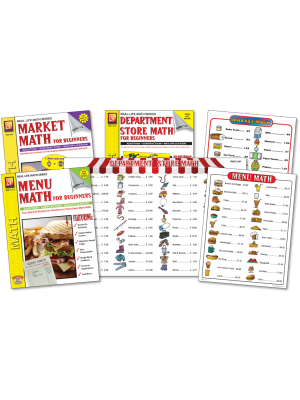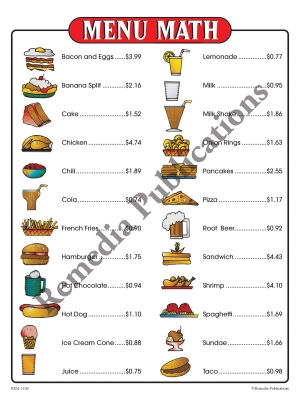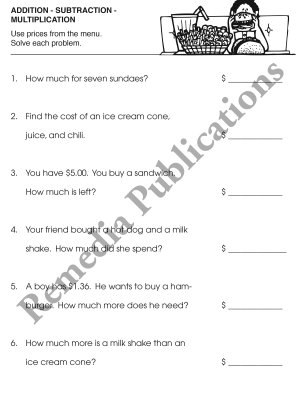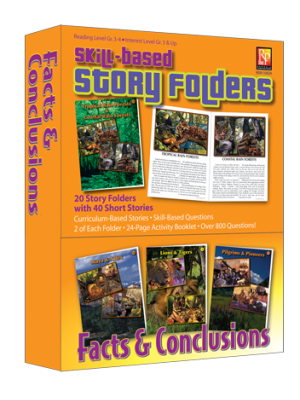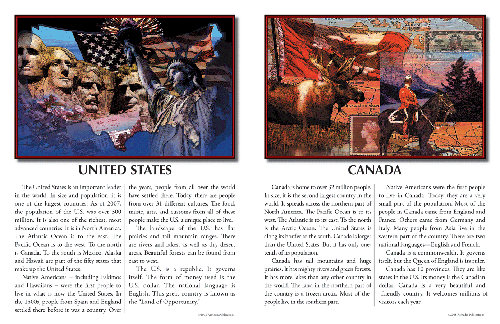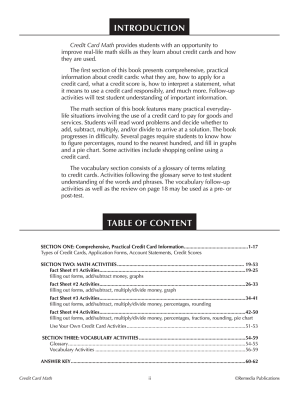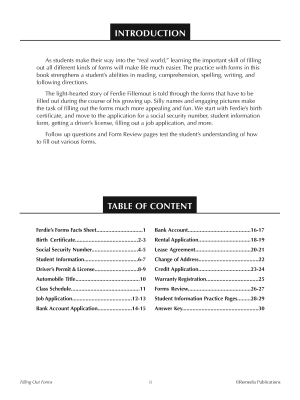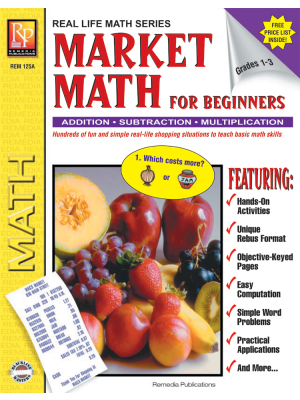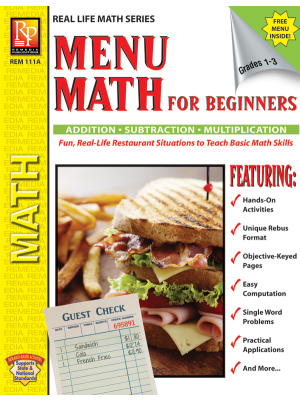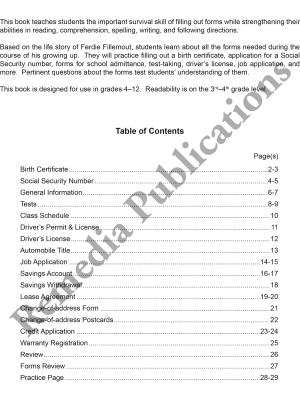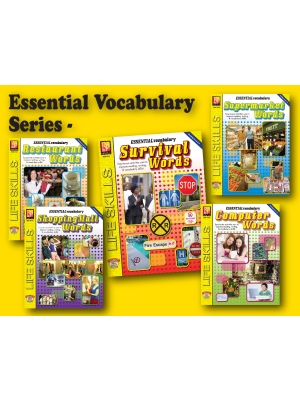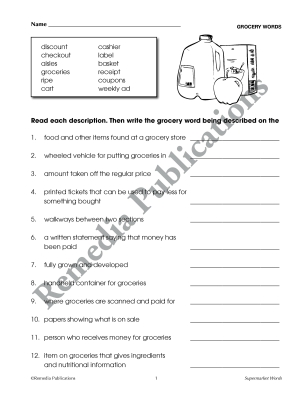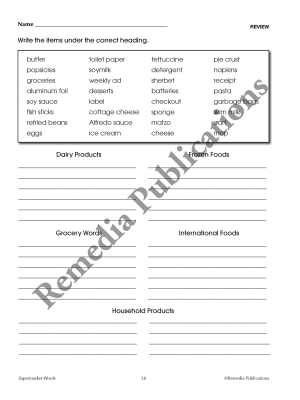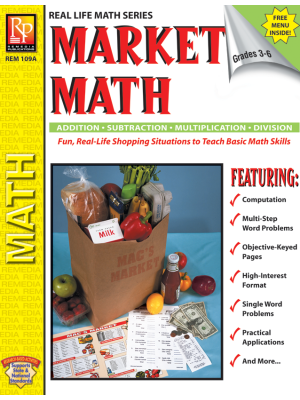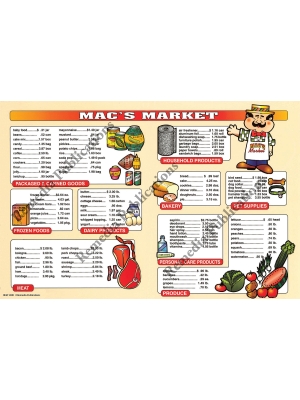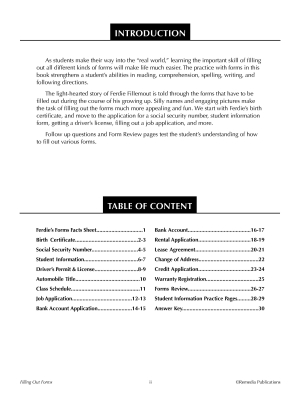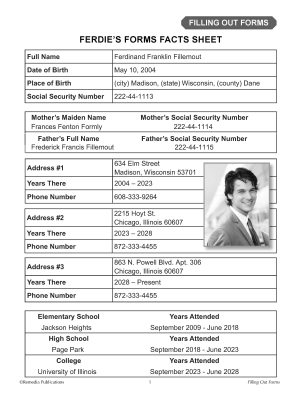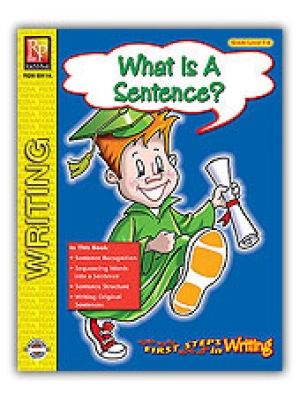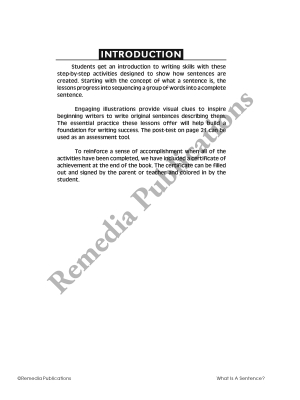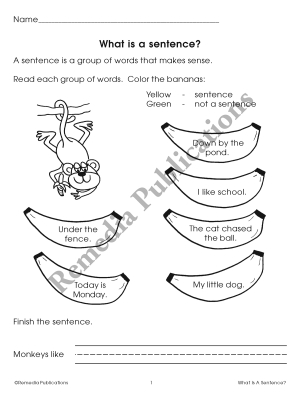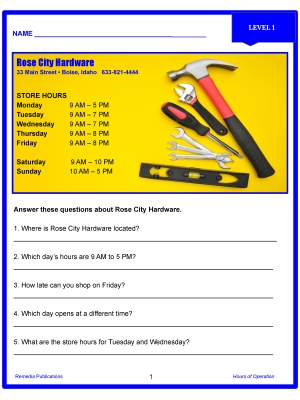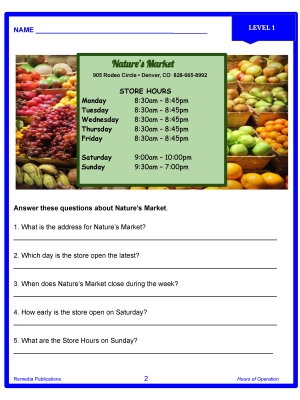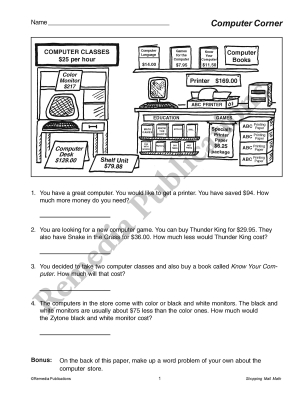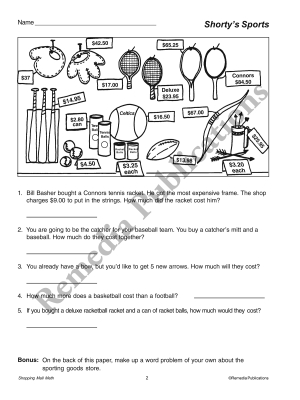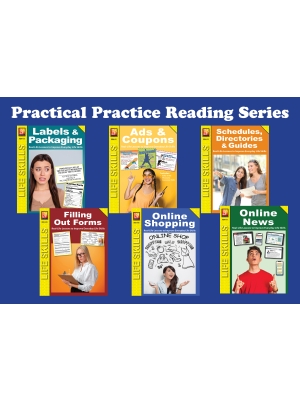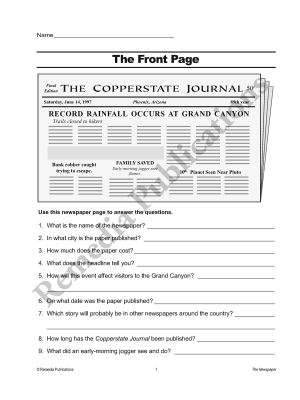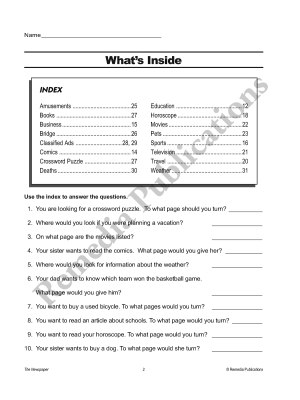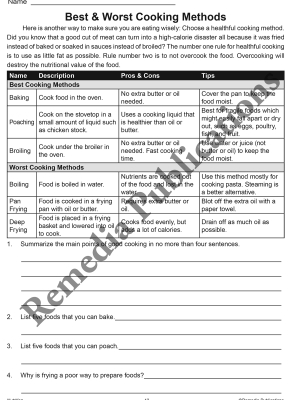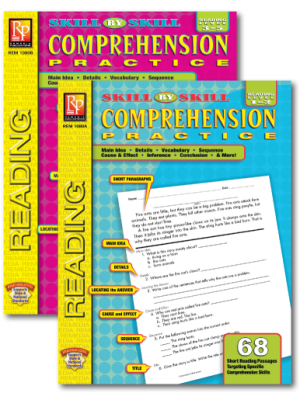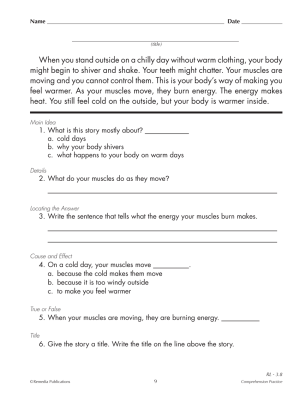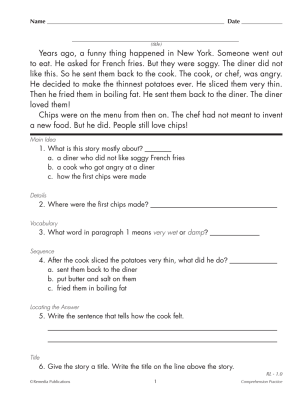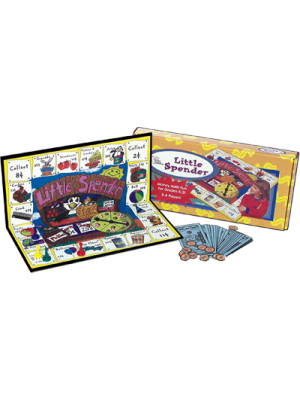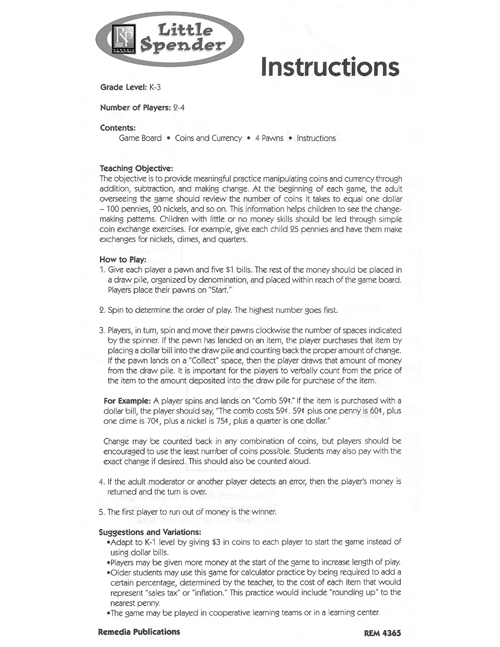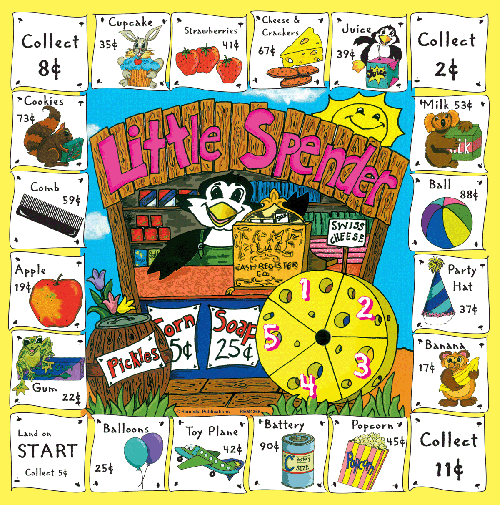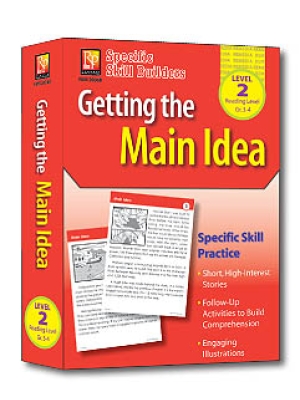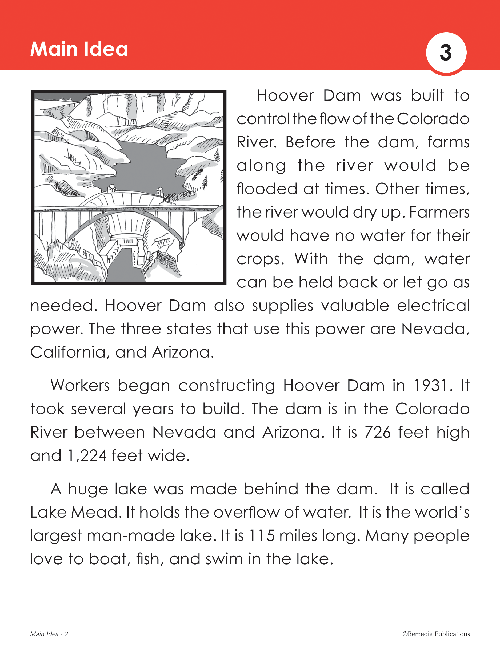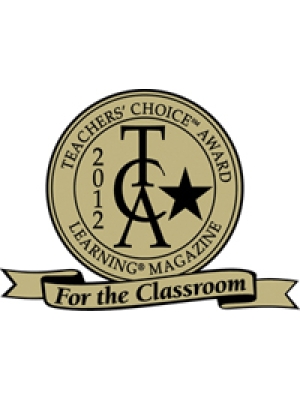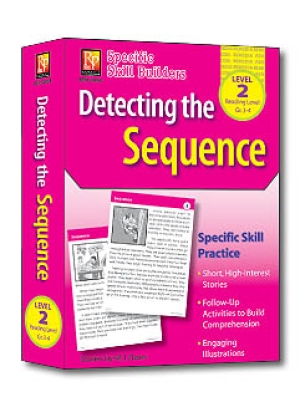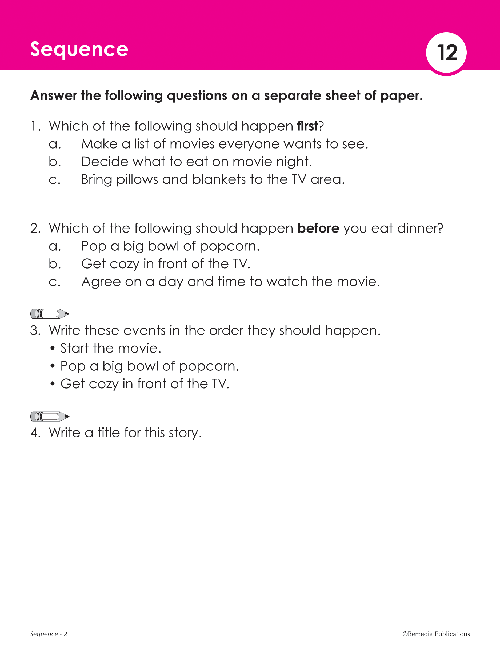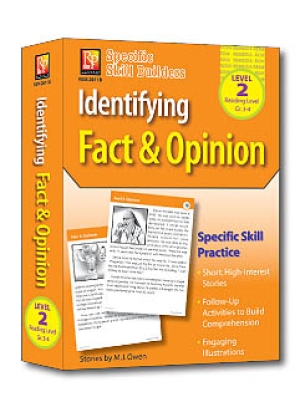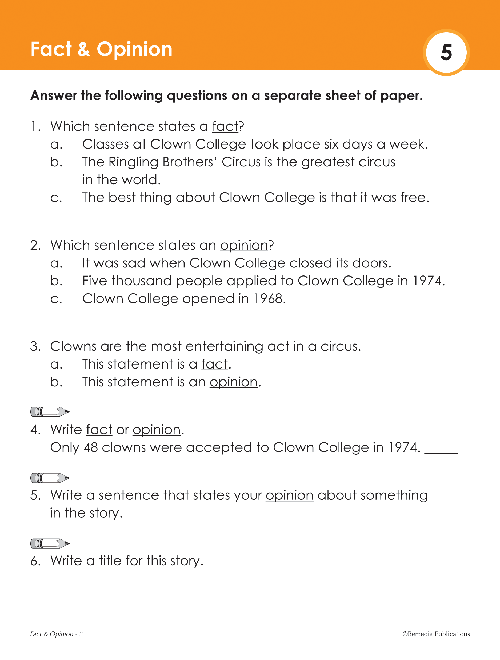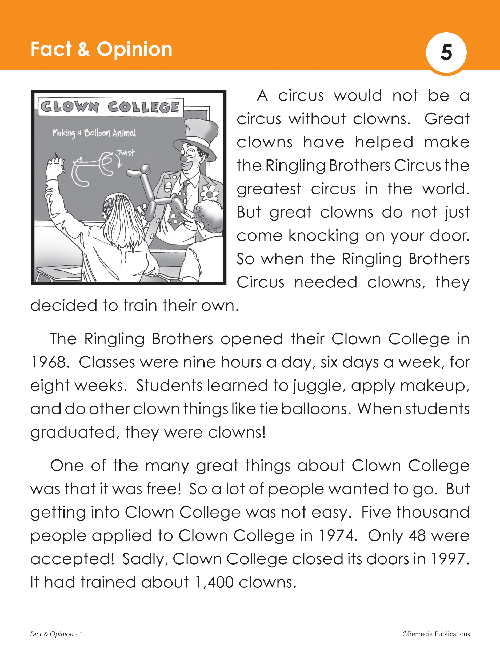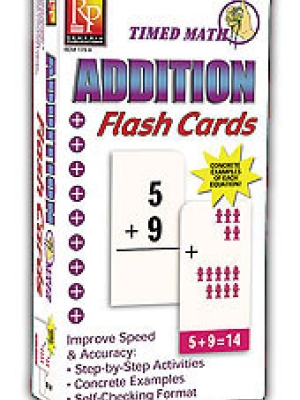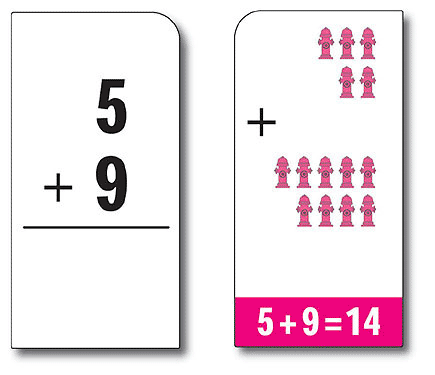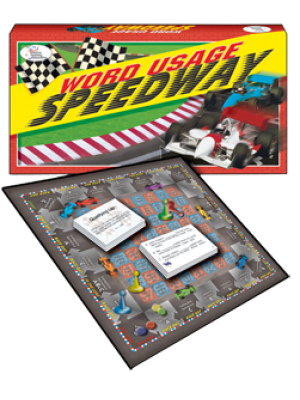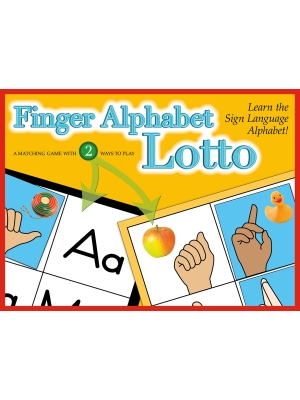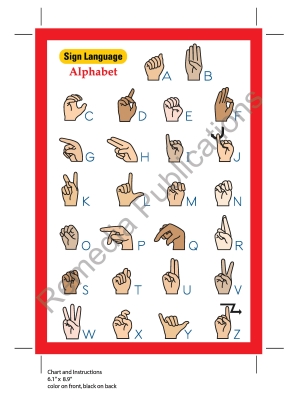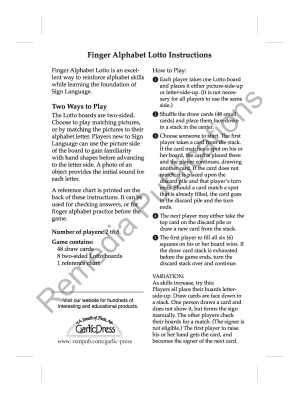Grade Level: 9-12
Interest Level: N/A
Reading Level: N/A
The Discovering Literature Series is designed to develop a student’s appreciation for good literature and to improve reading comprehension. At the Challenging Level, we focus on a variety of reading strategies that help students construct meaning from their experience with literature as well as make connections between their reading and the rest of their lives. The strategies reflect the demands of each literature selection.
In these study guides, we will focus on beginning a book, setting and mood, irony, plot structure, foreshadowing and flashback, characterization, forming hypotheses, evaluating a book, plot conflict, point of view, inferencing, rereading, theme, narration, and the genre of dystopias.
Each chapter analysis is organized into three basic elements: Journal and Discussion Topics, Chapter Vocabulary, and Chapter Summary.
Other features include Strategy Pages to increase students’ understanding of strategies to enhance their comprehension of literature; Testing at the end of each chapter grouping, and Writer’s Forum for students’ to write in a variety of genres relating to the text.
This 112-page teaching guide includes an answer key.
Table of Contents
About the Organization of This Literature Guide
• Vocabulary
• Chapter Pages
• Groupings of Literature
• Strategy Pages
• Tests
• Writer’s Forum Pages
• History of Ideas Pages
• Theme Pages
Introducing the Literature
• Sample Lesson Plan
Vocabulary
• Book Order
• Alphabetical Order
• Strategy 1: Beginning a Book
• Strategy 2: Plot—The Design of a StoryChapter 2: Fire on the Mountain
• Strategy 3: Forming a Hypotheses
• Strategy 4: Characterization
• Writer’s Forum 1: Description
• Strategy 5: References and Allusions—A Story with a PastChapter 3: Huts on the Beach
• Strategy 6: Plot—Conflict
• Writer’s Forum 2: Journal
• Strategy 7: RhetoricTest: Chapters 1-3
• Strategy 8: Irony
• Writer’s Forum 3: List of Rules
Chapter 4: Painted Faces and Long Hair
• Strategy 9: Point of ViewChapter 5: Beast from Water
• Writer’s Forum 4: Dialogue
• Strategy 10: Setting the MoodChapter 6: Beast from Air
• Writer’s Forum 5: Persuasive Speech
• Strategy 11: SymbolismTest 2: Chapters 4-6
Chapter 7: Shadows and Tall Trees
• Strategy 12: Foreshadowing and FlashbackChapter 8: Gift for the Darkness
Chapter 9:
• Strategy 13: Names and EuphemismsChapter 10: The Shell and the Glasses
• Writer’s Forum 6: Compare and Contrast Essay
• Writer’s Forum 7: Poetry—An Elegy for Simon
Chapter 11: Castle Rock
• Strategy 14: Characterization ContinuumChapter 12: Cry of the Hunters
• Writer’s Forum 8: A Possible Ending
• Writer’s Forum 9: A News ArticleTest 4: Chapters 10-12
• Strategy 15: Consulting Outside References
• Strategy 16: Rereading a Book
• Strategy 17: Theme
• Strategy 18: Comparing and Contrasting a Book and a Movie
• History of IdeasTheme Pages
• Introduction
• Human Nature
• Civilization/Culture
• Government
• Violence/War
• Friendship and LoyaltyAnswer Pages
• People and Nature
• Leadership and Authority
• Maturity and Adulthood
• Status and Reputation
• Memory and Forgetting
• Reality and Responsibility
• Fear
Lord of the Flies: Discovering Literature Series - Challenging Level
- Product Code: REM GP096
- Viewed: 23755
- Availability: In Stock
$17.99
Grade Level: 9-12
Interest Level: N/A
Reading Level: N/A
The Discovering Literature Series is designed to develop a student’s appreciation for good literature and to improve reading comprehension. At the Challenging Level, we focus on a variety of reading strategies that help students construct meaning from their experience with literature as well as make connections between their reading and the rest of their lives. The strategies reflect the demands of each literature selection.
In these study guides, we will focus on beginning a book, setting and mood, irony, plot structure, foreshadowing and flashback, characterization, forming hypotheses, evaluating a book, plot conflict, point of view, inferencing, rereading, theme, narration, and the genre of dystopias.
Each chapter analysis is organized into three basic elements: Journal and Discussion Topics, Chapter Vocabulary, and Chapter Summary.
Other features include Strategy Pages to increase students’ understanding of strategies to enhance their comprehension of literature; Testing at the end of each chapter grouping, and Writer’s Forum for students’ to write in a variety of genres relating to the text.
This 112-page teaching guide includes an answer key.
Table of Contents
About the Organization of This Literature Guide
• Vocabulary
• Chapter Pages
• Groupings of Literature
• Strategy Pages
• Tests
• Writer’s Forum Pages
• History of Ideas Pages
• Theme Pages
Introducing the Literature
• Sample Lesson Plan
Vocabulary
• Book Order
• Alphabetical Order
• Strategy 1: Beginning a Book
• Strategy 2: Plot—The Design of a StoryChapter 2: Fire on the Mountain
• Strategy 3: Forming a Hypotheses
• Strategy 4: Characterization
• Writer’s Forum 1: Description
• Strategy 5: References and Allusions—A Story with a PastChapter 3: Huts on the Beach
• Strategy 6: Plot—Conflict
• Writer’s Forum 2: Journal
• Strategy 7: RhetoricTest: Chapters 1-3
• Strategy 8: Irony
• Writer’s Forum 3: List of Rules
Chapter 4: Painted Faces and Long Hair
• Strategy 9: Point of ViewChapter 5: Beast from Water
• Writer’s Forum 4: Dialogue
• Strategy 10: Setting the MoodChapter 6: Beast from Air
• Writer’s Forum 5: Persuasive Speech
• Strategy 11: SymbolismTest 2: Chapters 4-6
Chapter 7: Shadows and Tall Trees
• Strategy 12: Foreshadowing and FlashbackChapter 8: Gift for the Darkness
Chapter 9:
• Strategy 13: Names and EuphemismsChapter 10: The Shell and the Glasses
• Writer’s Forum 6: Compare and Contrast Essay
• Writer’s Forum 7: Poetry—An Elegy for Simon
Chapter 11: Castle Rock
• Strategy 14: Characterization ContinuumChapter 12: Cry of the Hunters
• Writer’s Forum 8: A Possible Ending
• Writer’s Forum 9: A News ArticleTest 4: Chapters 10-12
• Strategy 15: Consulting Outside References
• Strategy 16: Rereading a Book
• Strategy 17: Theme
• Strategy 18: Comparing and Contrasting a Book and a Movie
• History of IdeasTheme Pages
• Introduction
• Human Nature
• Civilization/Culture
• Government
• Violence/War
• Friendship and LoyaltyAnswer Pages
• People and Nature
• Leadership and Authority
• Maturity and Adulthood
• Status and Reputation
• Memory and Forgetting
• Reality and Responsibility
• Fear

